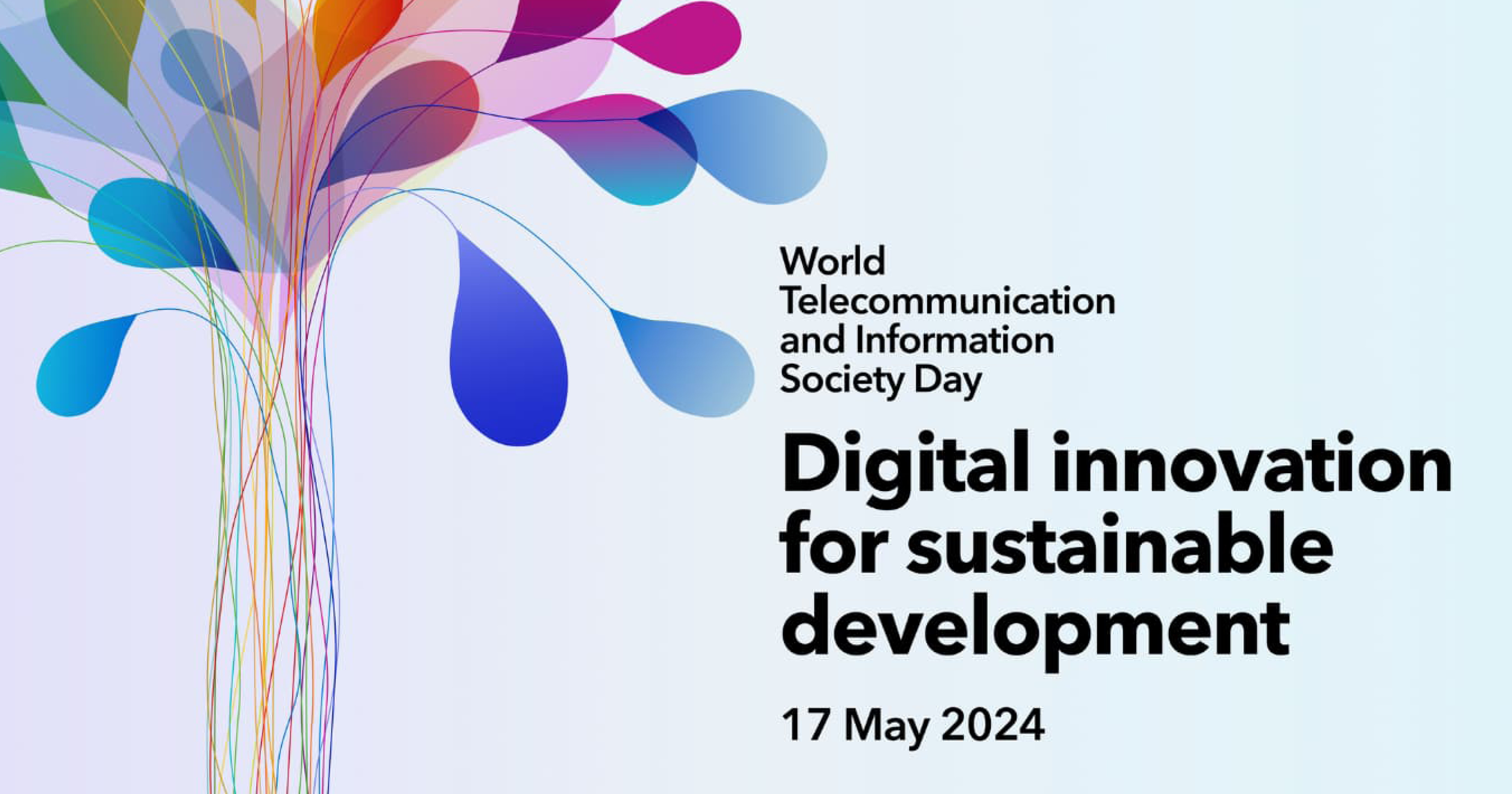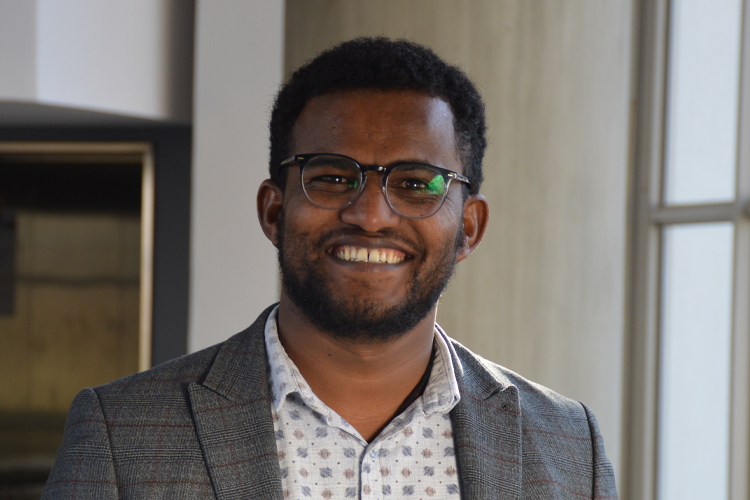The Centre for Human Rights, Faculty of Law, University of Pretoria, joins the rest of the world in commemorating World Telecommunication and Information Society Day (WTISD) 2024, a momentous occasion designated by the UN General Assembly in 2005. This day serves as a platform to spotlight the transformative potential of the internet and other technologies in advancing socio-economic development, while also championing efforts to bridge the digital divide. Its date, May 17, holds profound historical significance, tracing back to the signing of the First International Telegraph Convention on 17 May 1865, which established the International Telecommunication Union (ITU). The establishment of the ITU, laid the foundation for international cooperation and innovation in the dynamic sphere of communication and information technology.
The 2024 WTISD theme “Digital Innovation for Sustainable Development,” strikes a profound chord, resonating deeply with the challenges confronting the continent, particularly concerning access, inclusion, and the safeguarding of digital rights. Among these challenges are the digital divide, which disproportionately affects vulnerable groups including women, persons with disabilities, rural and indigenous communities. Equally concerning trends are the digital repression tactics such as internet shutdowns and cybersecurity threats, all demanding urgent attention and concerted action. On this important commemorative occasion, the Centre for Human Rights takes this opportunity to reflect on the state of affairs in Africa. While acknowledging the strides made in access and connectivity across the continent over the past decade, the Centre also wishes to draw attention to the persistent challenges in navigating the rapidly evolving sphere of communication and information technology, particularly in the increasingly digitised world.
Notably, the WTISD serves as an important reminder of the urgent need to narrow the digital divide and ensure equitable access to information and communication technologies in Africa, with particular attention to the gap in internet accessibility. While significant progress has been made over the past decade, as indicated by the recent ITU report “Facts and Figures 2023,” Africa still trails behind the global average of 67%, with merely a 37% internet usage rate. Alarmingly, the same report highlights Africa’s stark digital gender disparity, with only 32% of African women accessing the internet in 2023 compared to 42% of men, while the global average for women stands at 65%. A substantial internet use gap also persists between rural and urban areas, with a stark contrast of 57% of urban dwellers accessing the internet compared to a mere 23% of rural inhabitants in 2023.
This digital disparity poses a substantial impediment to the advancement of African states in their pursuit of sustainable development goals, constraining access to vital resources such as education, healthcare, and undermining economic prospects. This is especially true as more than two-thirds of the UN's sustainable development targets can directly benefit from digital technologies, as indicated by the ITU and the United Nations Development Programme (UNDP). It is also worth noting that, because the digital divide disproportionately affects vulnerable and disadvantaged groups such as women, children, rural populations, and people with disabilities, it contributes to the widening of existing social inequality gaps by impeding these groups’ acquisition of fundamental digital skills required for daily life and overall well-being. This risks further marginalising vulnerable communities, thereby undermining the fundamental spirit of sustainable development goals.
This significant commemorative day provides an opportunity for African Union (AU) member states to reflect on the immense and transformative potential of ICTs in achieving the SDGs and tackling various digital challenges within their countries. Central to this is championing digital inclusion to ensure that the benefits of ICTs are accessible to all segments of society, including marginalised and vulnerable groups, in line with the African Union’s Digital Transformation Strategy for Africa 2020-2030 (Africa DTS). The DTS aims inter alia to leverage technology for African integration, inclusive growth, job creation, and poverty eradication, while addressing the digital divide to ensure Africa’s ownership of modern digital tools for socio-economic development. To achieve this, a multi-stakeholder approach is necessary among African states, the ICT corporate sector, the AU, and development partners, who should collaborate to prioritise investment in ICT infrastructure, connect as many people as possible to the internet at low cost, and eliminate internet shutdowns. Concerted efforts are also required to address inequalities in access to infrastructure, economic disparities, disparities in digital literacy levels, social inequities, and governmental policies. Only through unified action can Africa fully capitalise on the potential of ICTs to drive sustainable development and societal advancement.
Efforts should thus include building on existing African initiatives for promoting digital literacy and skills development including by integrating ICT into education curricula, adopting robust policy and regulatory frameworks, strategically investing in infrastructure, and establishing collaborative partnerships. These approaches aim to create a more inclusive and equitable digital future for all African citizens. Equally critical is the establishment of rigorous monitoring and evaluation mechanisms to track progress on ICT development and digital rights, as stated in the USCO’s Qingdao Declaration (2015) and the Africa DTs. This entails collecting data, measuring outcomes, and assessing the impact of policies and initiatives. These mechanisms will facilitate evidence-based approaches to promote digital inclusion, equity, and rights across the continent.
It is equally important for member states to prioritise the implementation of comprehensive cybersecurity strategies to address cyber threats and vulnerabilities. This necessitates a collaborative approach that includes multiple stakeholders, such as government organisations, the private sector, and civil society. Acknowledging the disproportionate impact of cyber-attacks on vulnerable and marginalised groups, it is important for states to also increase investment in digital literacy and skills development initiatives tailored specifically to address cybersecurity threats. Such programs will empower individuals, particularly those from vulnerable and marginalised groups, to navigate the digital landscape safely and effectively, thereby mitigating the escalating threat of cyber-attacks.
The Centre also wishes to highlight the impact of digital repression tactics, such as internet shutdowns, implemented by certain African states. It is deeply concerning to witness frequent instances of internet shutdowns across several African countries, including Ethiopia, Sudan, and Senegal. These repressive measures have significant consequences for human rights, notably impinging on political participation, freedom of expression, freedom of association, freedom of assembly and access to information. They disrupt vital family communications, particularly amid conflicts, hinder economic activities, exacerbate social and political tensions, and undermine humanitarian efforts. They also hinder the ability of people in affected areas to benefit from the transformative potential of ICTs in improving access to education and healthcare. This is more acute in regions where physical services are disrupted as a result of security concerns or in underserved regions reliant on online platforms for education and healthcare information. Their impact on vulnerable groups is disproportionate, as their demographic characteristics, coupled with social realities, render them more susceptible to its effects. The Centre thus implores states to exercise restraint, ensuring that individuals within their jurisdictions can fully harness the benefits of information and communication technologies, thereby empowering them to exercise their rights and enhance their quality of life, in accordance with their obligations under Article 9 of the African Charter on Human and Peoples’ Rights and soft laws such as the African Commission’s Resolution on the Right to Freedom of Information and Expression on the Internet, and the Declaration of Principles of Freedom of Expression and Access to Information in Africa (2019).
The Centre also emphasises the significance of supporting states in confronting the myriad challenges related to ICT development and digital rights in Africa. Developed nations, regional and global organisations, as well as tech and social media platforms, alongside civil society groups, should unite in supporting African states to advance digital inclusion and uphold human rights. However, it is crucial that any aid—both technical and financial—be coupled with robust human rights oversight to ensure the realisation of the full potential of ICTs while safeguarding fundamental human rights.
In light of the state of affairs on the continent, the Centre reiterates the crucial role of establishing effective and participatory governance mechanisms in promoting an environment conducive for ICTs. This includes the development of policies that promote competition and innovation, while upholding human rights such as privacy and freedom of expression. Therefore, the Centre urges AU member states, particularly those yet to enact comprehensive data protection laws, to promptly adopt such legislation in alignment with relevant international frameworks on data protection. These frameworks include the African Union Convention on Cybersecurity and Personal Data Protection (2014), the African Data Policy Framework (2022), and the African Commission on Human and Peoples' Rights’ Declaration of Principles on Freedom of Expression and Access to Information in Africa (2019).
On this occasion, the Centre reaffirms its continued commitment to championing digital rights and promoting inclusion and the elimination of barriers to access, ensuring that every individual across the continent can fully participate in and benefit from the digital age. Through collaborative partnerships with states, regional bodies, civil society organisations, and other stakeholders, the Centre strives to cultivate a shared vision and concerted efforts in harnessing the transformative power of ICTs to create a more equitable, accessible and meaningful digital landscape for everyone on the continent.
For media inquiries, please contact:
Tel: +27 (0) 713362225
henok.kremte@up.ac.za
Tel: +27 (0) 12 420 4199
Hlengiwe.Dube@up.ac.za




